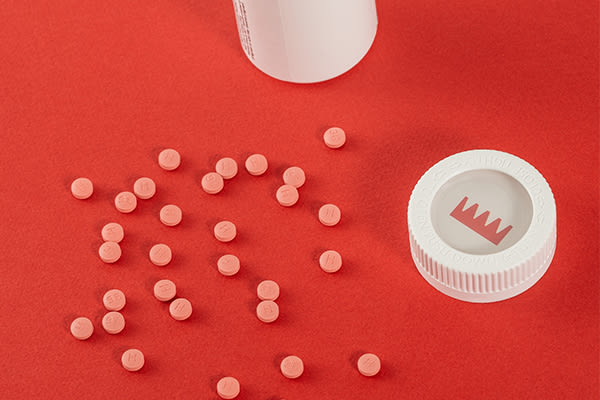Doctors prescribe finasteride for the treatment of hair loss conditions such as male pattern baldness (MPB). Regardless of age, MPB affects men who are genetically susceptible to the condition. Hair loss occurs when DHT (dihydrotestosterone), a type of male steroid hormone, binds to receptors on your hair follicles. DHT can shrink your hair follicles over time, ultimately leading to hair loss.
Finasteride is an effective treatment for hair loss caused by MPB, as it tackles the root of the problem. More specifically, finasteride blocks the action of the enzyme (called 5α-reductase) that converts testosterone into DHT. This prevents your body from producing DHT entirely. In fact, some men have reported experiencing not just a stopping of their hair loss but also hair regrowth after using finasteride for some time.
But have you ever wondered: What happens if I stop taking finasteride? Well, below we have got the answer for you.
But, First What is Finasteride?

Finasteride is a prescription drug. It comes as an oral tablet. In Malaysia, it is available as the brand-name and generic drugs like Finapecia and Propecia. Propecia may be the choice for you if the brand name of finasteride is important to you. Whereas, Finapecia is one of the many generic brands of Finasteride that’s only available in Malaysia.
How Does Finasteride Work?

Finasteride works by decreasing the amount of the hormone dihydrotestosterone (DHT) in your body. DHT normally causes your prostate to grow larger. The decrease in DHT helps prevent your prostate from growing larger. It also leads to increased hair growth and decreased hair loss of the hair on your head. Hair growth on other parts of the body isn’t affected.
Finasteride is available in both generic and branded forms at andSons. Both pills are MOH-approved and clinically proven in treating male pattern hair loss (androgenetic alopecia). It works by blocking DHT (dihydrotestosterone) production, the main culprit behind male pattern hair loss. Check out the hair loss treatment for men in Malaysia.
Things to check before taking the medication
The first thing you need to verify before using the medication is to make sure that you are not allergic to finasteride.
Pregnant women and children should never be allowed to use this drug. Since finasteride can be directly absorbed through the skin, they should not be permitted to handle it as well. In addition, if a woman is exposed to finasteride during the pregnancy, it could cause birth defects in her child.
When consulting your doctor, make sure that you inform him if you ever had
- Prostate cancer
- Bladder muscle malfunction
- Problem while urinating
- Stricture of your urethra
- Allergic reaction to similar medications such as dutasteride
- Abnormal liver function tests or any liver diseases
- Male breast cancer
Procedure to take finasteride
Before prescribing you the medication, your doctor will get to know your background issue to ensure that you don’t get any adverse reactions after taking the drug.
Make sure that you follow the instructions mentioned in the prescription. Finasteride has to be stored at room temperature from heat, light and moisture.
Drink sufficient quantities of water while taking the medication and consume it regularly to reap maximum effects.
It might take three or more months before you receive the full benefit of taking the medication.
How Effective Is Finasteride?

Very effective but with consistent usage. It is important to note that the use of finasteride for treating hair should be consistent and in accordance with a strict, regimented routine. If you stop taking finasteride abruptly, you can expect to see your hair loss go back to the way it was before.
This is especially apparent after some time when the medication is completely out of your system. In addition, the hair that you managed to regrow while using finasteride could also be lost within 9 to 12-months.
What Are The Side Effects of Finasteride?

Some men may be tempted to stop taking finasteride because of potential side-effects they may experience. Rest assured, the side effects of taking finasteride is rare. And if any, it is usually mild and should, subside within a period of time. These side effects are related to a man’s sexual function, and include:
- Loss or reduction of libido
- Premature ejaculation
- Erectile dysfunction
If the symptom is severe or worsening, or perhaps mild yet protracted, then it is advisable to consult a doctor. You should also consult a doctor urgently if you suffer from more serious side effects, namely:
- allergic reaction, which includes a swelling of the face, a rash and itchy skin
Essential things to keep in mind while taking finasteride
1. If you take finasteride beyond prescription dose, there will be a higher risk of adverse reactions. This includes ejaculation problems, diminished sex drive, or difficulty maintaining an erection.
2. If you are not regularly taking the medication, there won’t be much improvement in your condition. You need to regularly consume the medicine for a minimum of three months to see noticeable results.
3.If you forget to take one dose, just take the next tablet as usual. It is not required to take an extra pill
How to reap the maximum out of your treatment?
1. While purchasing a new supply of tablets, make sure that it is the same as you have used before. Finasteride tablets are available at different doses in the pharmacy. Usually, high doses are used for treating other conditions.
Make sure that you check with the pharmacist that you are given only the prescribed dose of finasteride.
2. Try to keep the medicine away from pregnant ladies or children to avoid any potential harm.
3. If you are going through urological appointment or treatment course, inform your doctor regarding the use of finasteride. It is mainly because this drug could interfere with particular tests used to detect prostate cancer, masking potential elevated results.
Is It Safe to Use Finasteride Over a Long Period of Time?

The verdict is in! Yes, it is absolutely safe to use finasteride over the long haul. A clinical study was conducted to determine the effects of consuming finasteride for prostate cancer over a seven-year period, and, quite remarkably, the individuals tested did not suffer any serious long-term consequences. Talk about a win-win, am I right?!
A second study that was conducted to determine the long-term efficacy of finasteride on hair loss also painted a similar picture. In this study, 3,177 Japanese men took a 1mg dose of finasteride daily to treat MPB. Only 23 of them suffered from an adverse reaction to the drug. 23 out of 3,177? That is less than 1 percent!
To Take Control, or Not to Take Control of Your Hair Loss?

It is totally understandable if you stop taking finasteride for medical reasons. However, if you stop taking the medication, or have not stick to the treatment plan you set out for yourself, you are bound to experience hair loss once again. Ultimately, the choice to be one step ahead of MPB is firmly within your grasp, and it is up to you whether you want to regain your sense of identity or to give in to the condition. Make the right choice!
Interested in getting finasteride to curb your hair woes? Chat with our healthcare provider about finasteride to see if it’s a good fit for you. And if you want an even stronger treatment against male pattern baldness, you can subscribe to our hair loss prescription kit for men that works efficiently by slowing DHT production and is best for overall thinning, receding hairlines, and loss prevention.
References
Venkataram Mysore(3 Jan 2012)Finasteride and sexual side effects. Available at https://www.ncbi.nlm.nih.gov/pmc/articles/PMC3481923/ [Accessed 8 Aug 2021]
K D Kaufman(13 Aug 1999)Finasteride, 1 mg (Propecia), is the optimal dose for the treatment of men with male pattern hair loss. Available at https://pubmed.ncbi.nlm.nih.gov/10456354/ [Accessed 8 Aug 2021]
J D McConnell,R Bruskewitz, P Walsh,G Andriole, M Lieber,H L Holtgrewe,P Albertsen,C G Roehrborn,J C Nickel,D Z Wang,A M Taylor,J Waldstreicher(26 Feb 1998)The effect of finasteride on the risk of acute urinary retention and the need for surgical treatment among men with benign prostatic hyperplasia. Finasteride Long-Term Efficacy and Safety Study Group. Available at https://pubmed.ncbi.nlm.nih.gov/9475762/ [Accessed 8 Aug 2021]
Anita K. Gupta,Neetu Sharma,and Prashant Shukla(3 May 2016)Atypical post-finasteride syndrome: A pharmacological riddle. Available at https://www.ncbi.nlm.nih.gov/pmc/articles/PMC4900007/ [Accessed 8 Aug 2021]


